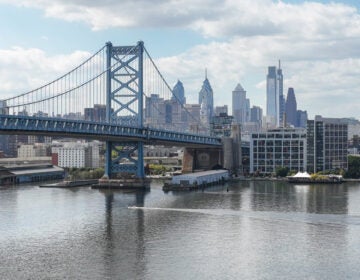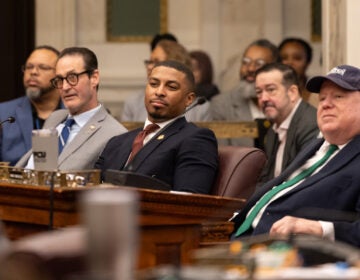City funds for proposed dialysis center still in limbo
At a City Council hearing last month on a proposed dialysis center in Chestnut Hill, Paul Deegan, the senior vice president of the Philadelphia Industrial Development Corporation (PIDC), testified that the city was providing funding for the facility through its EnergyWorks program.
That’s not true, at least not yet.
According to Mayor Michael Nutter’s office, the Delaware Valley Nephrology & Hypertension Association (DVNHA) has applied for EnergyWorks funding to retrofit the center, but the city has not made a decision about it. EnergyWorks, which is supported by the U.S. Department of Energy’s Better Buildings Program, provides low-interest loans to property owners in order to lessen their buildings’ energy use.
“Maybe I was too definite at the hearing,” says Deegan. “It hasn’t gone to our loan committee. We still have to sit down with them and get specifics — look at their business plan, the financial use of the property, and how many jobs are being created.”
At the hearing, Deegan said, “I would like to go on record to say that we support the [project]. We’re also providing financing through the city’s new, innovative GreenWorks or EnergyWorks program to the project.”
The proposed dialysis center, which would be run by Fresenius Medical Care at 10 E. Moreland Avenue, has been the subject of no small controversy in Chestnut Hill: Neighbors and the Chestnut Hill Residents Association oppose it, claiming that its nighttime hours will disrupt the community. The PIDC, the city Planning Commission and City Council support it, arguing that the area is home to other commercial buildings, and that the center will create jobs.
The disagreement began at a Zoning Board of Adjustment hearing, when Fresenius agreed to limit its nighttime hours in a written proviso — and in return, the Board granted the company a zoning variance, which would allow it to operate on a parcel that was zoned for industrial uses only.
But Fresenius later asked the Board to remove that proviso, and it did. Two neighbors, Susan and Peter Burke, sued the Board for not holding an additional hearing about this change. But before that case went to trial, Fresenius approached City Councilwoman Donna Reed Miller, and she penned a bill that rezones the parcel for commercial uses — meaning Fresenius can move in and operate during whatever hours it pleases. City Council passed the bill in December.
At a Planning Commission meeting, Burke said of the bill, “We have a right to appeal, and you’re going to take that away from us.”
On the other hand, Deegan was one of the folks who testified in support of the center, saying at the hearing, “It’s the kind of project we particularly like. It’s a small business.”
PIDC’s testimony was, in general, a source of contention. Ron Recko, a founding member of the Chestnut Hill Residents Association, said, “[PIDC] said that they want a business like Fresenius because they want small businesses coming in. … It’s a multi-billion dollar organization from Germany.”
Fresenius calls itself the “largest provider of renal services in North America” on its website.
Deegan explained to PlanPhilly that he wasn’t referring to Fresenius when he used the phrase “small business.”
“Even though Fresenius is an international company, the people we’re loaning the money to is Delaware Valley Nephrology, which is three local doctors with a practice in Mt. Airy and Chestnut Hill,” says Deegan. “They are actually borrowing the money and buying the building and renovating it, and Fresenius would be their tenant.”
City Council hearing transcript pdf
WHYY is your source for fact-based, in-depth journalism and information. As a nonprofit organization, we rely on financial support from readers like you. Please give today.




